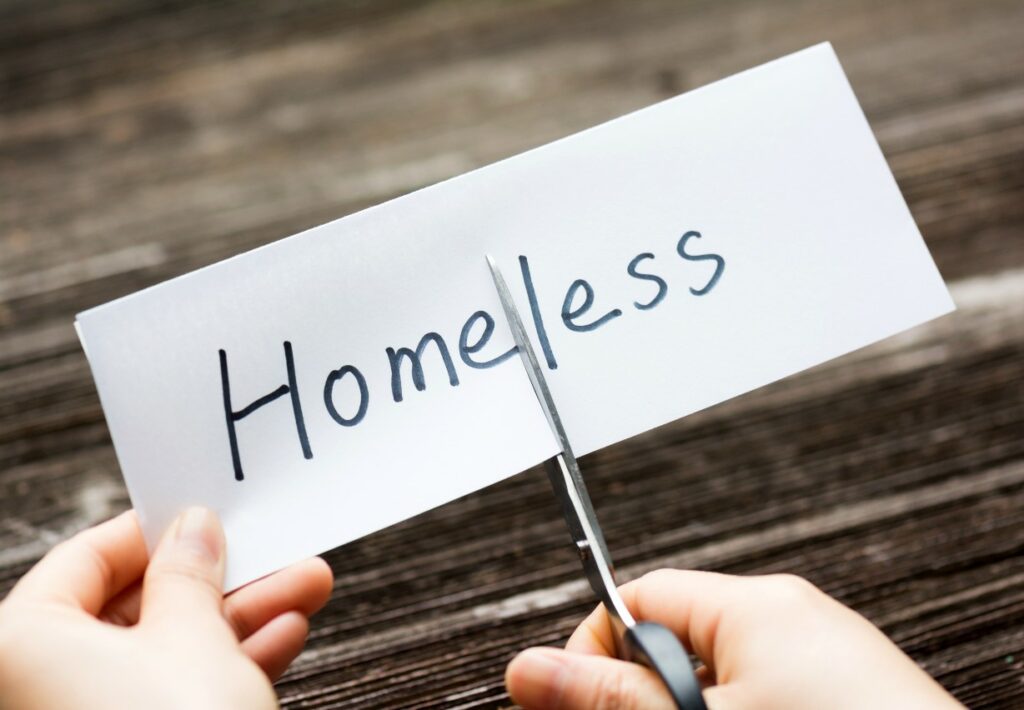This post originally appeared at https://www.badgerinstitute.org/at-home-with-politically-incorrect-language/
I suppose I’ll be accused of being unkind, uncouth or maybe even unhinged, but why in the world does the La Crosse Tribune feel compelled to write about the “unhoused”?

The Tribune uses the word as both an adjective and a noun. They write about “unhoused people,” the “unhoused community,” the “unhoused population” and, also, just the plain old “unhoused.”
What they don’t write about any longer, at least in the story I saw dated May 21, is “the homeless” — a term which some people now consider derogatory.
Neither the reporter who wrote the story (it’s actually a pretty good story about the large homeless population in La Crosse) or the executive editor of the paper returned my call. So I don’t know if they’re among those people. But I do know that the label “homeless” now implies that one is “less than” and that it “undermines self-esteem and progressive change,” according to the website for an organization called Unhoused.org.
The term “unhoused,” on the other hand, “implies there is a moral and social assumption that everyone should be housed in the first place.”
A story at the website Planetizen, in the meantime, tells us that some argue the term “homeless … dehumanizes the people experiencing homelessness and flattens their identity into one stigmatized characteristic.” It can carry “baggage that brings with it connotations of personal failings, drug use and other stigmatizing assumptions.”
The reporter for the Tribune did not, to her credit, avoid reporting that “many residents” at a recent La Crosse Park Board meeting “shared experiences of cleaning up trash and needles, witnessing people urinating, defecating or using drugs in public.” Nor did she describe any of those actions as personal achievements.
She also reported on a scarcity of emergency shelter beds and transitional housing and “permanent supportive housing” — important public policy issues that deserve to be discussed.
Homelessness is a tough issue and one that is tough to generalize about. A couple winters ago, I looked out our apartment window on a very cold winter night and saw a homeless person sleeping under I-794 in Milwaukee. I was afraid she was going to quite literally freeze to death, so I went to a hotel about a block away and paid for a room and walked over and told her — lying there on the frozen ground in a sleeping bag — that I was afraid she was going to die.
I told her she could walk down to the hotel and they would give her a pre-paid room.
Her response: No.
I presume she had her reasons. I also presume many other homeless people would have gladly taken the warm room. Beyond that, I try not to have too many presumptions about a really complex problem.
What bothers me a little is when the mainstream media adopts the terminology of lefty activists who presume the rest of us are insensitive dolts betrayed by the archaic language used by 99.9% of the world.
Or maybe they’re just following the increasingly sanctimonious Associated Press Stylebook, which doesn’t mandate use of “unhoused” or ban the use of “homeless” as an adjective but does tell reporters to “avoid the dehumanizing collective noun the homeless.”
The 2022-2024 AP Stylebook, by the way, has a whole new chapter on what they call “inclusive storytelling” meant to help reporters overcome “unconscious biases” and be “sensitive about specific words and phrases.”
The problem is that once a reporter and a paper adopt the language of the left, no matter how good the story is, they are putting their fingers on the scale, using language no normal person ever does, preaching.
It’s not just the mainstream media that wants to prove it is couth and kind. The UW-Madison Information Technology area actually felt compelled to issue a list of discriminatory words like “whitelist,” and “gray beard” and “master.” That’s no longer a master file, mind you, it’s a primary file. Unless, I guess, it’s inside a plantation.
One of my colleagues pointed out, in the meantime, that apparently nobody commits suicide at UW-Madison anymore.
The “Inclusive Language Guide” there says to “avoid using the phrase committed suicide” because the verb “commit” “can imply a criminal act” and laws against suicide have been repealed in many places.
I have a couple great one-liners that I could insert here but don’t want to commit a faux pas — and get locked up for it.
Once somebody on the left issues a proper language pronouncement, everyone else on the left feels compelled to engage in the same virtue-signaling. Pretty soon everybody is jumping in, showing how good and decent and understanding they are — and how uncouth and unkind everyone else is.
A policy analyst for the ACLU, for example, was quoted as saying that the word “homeless” has become inseparable from a “toxic narrative” that blames and demonizes people, implies they are dangerous or devious.
Either that, or — well — they’re homeless.
Mike Nichols is the President of the Badger Institute. Permission to reprint is granted as long as the author and Badger Institute are properly cited.
The post At home with politically incorrect language appeared first on Badger Institute.